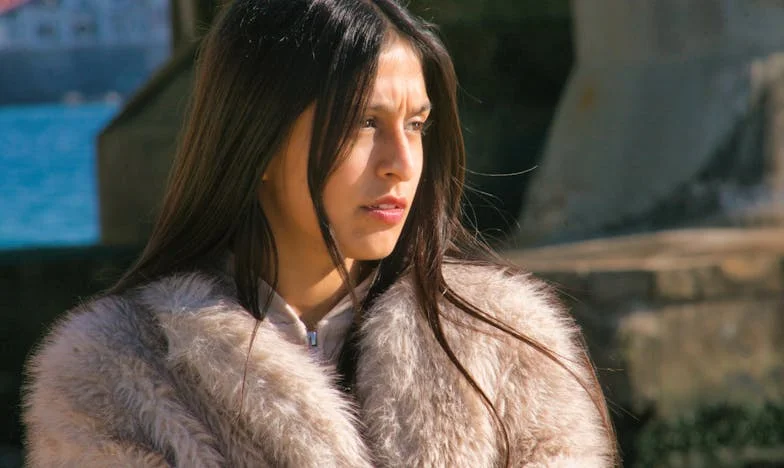When I Asked Grandma to Sign Over the House: A Family Torn Between Love and Trust
“You want me to do what?” Grandma Dorothy’s voice cracked the silence of her kitchen, her hands trembling ever so slightly as she gripped the chipped coffee mug. I’d never seen her look so small in her own home. The home she’d built, brick by brick, after Grandpa died. I felt my tongue stick to the roof of my mouth. But I couldn’t back down now.
“I’m just asking if you’d consider putting the house in my name, Grandma. You always said you wanted to keep it in the family, and… well, I’m here. I always will be,” I stammered, trying to sound confident but hating the way my voice wavered.
Outside, the wind rattled the windowpanes. Inside, her blue eyes—sharp, tired, loving—bored into mine.
I’m Lauren. Twenty-eight years old, raised by a woman who wasn’t supposed to be my mother but became more of one than anyone else ever tried to be. My parents left when I was six. Mom ran off with a trucker from Minnesota. Dad just… drank himself into a haze and disappeared. Dorothy took me in, taught me how to make meatloaf, how to plow a driveway in January, and how to patch a scraped knee without tears.
But when I asked her to sign over the house last month, it was like I’d shattered something sacred between us. I could feel the crack running through every word, every glance.
My cousin, Eric, overheard us. He never came by except for the holidays and free food, but he must’ve smelled drama from across town. He stormed in the next day, voice hard as gravel. “So, Lauren gets the house, huh? Guess the rest of us are just chopped liver.”
I tried to explain. “Eric, you know I’m the only one who’s been here for her. You’ve got your own apartment. You barely call.”
He scoffed. “Doesn’t mean you get everything. You think because you changed a few lightbulbs and made her soup when she had the flu, you’re entitled to the house?”
That stung. I wanted to scream that it was more than soup, more than chores. It was sitting up with her after her hip surgery, helping her bathe, reading her old Christmas cards when her eyes got too weak. It was the years of waking up to her coughing, the slow terror of watching her forget where she put the sugar, the fear that one day she’d forget me too. But I bit my tongue.
Dorothy wouldn’t talk to me for days. She shuffled around, silent, her presence heavy as a storm cloud. I tried to make breakfast, but she’d shake her head, turn away. Every room felt colder.
One night, I found her sitting on the porch, wrapped in Grandpa’s old Army blanket. “You think I owe you this place because you stayed?” she whispered, her voice barely louder than the cicadas. “You think loving me is something I can pay back with bricks and mortar?”
Tears pricked my eyes. “No, Grandma. I just… I’m scared. If something happens to you, I don’t want to lose this place. I don’t want to lose what we have.”
She looked at me for a long time. “Love isn’t a transaction, Lauren. It’s not about earning or deserving. It’s just… giving.”
But Eric wasn’t done. He called our Aunt Susan in California, who called Mom—my absentee mother—who suddenly remembered I existed. My phone rang off the hook. Voicemails stacked up: “Lauren, you can’t pressure Dorothy like this.” “Lauren, are you after her money?” “I always knew you were selfish.”
The gossip spread like wildfire: Lauren, the greedy granddaughter, trying to steal the house from a sick old woman. People I barely knew from the church potluck stopped saying hi. I started driving an extra mile just to avoid the grocery store where the cashiers whispered about me.
One night, I broke. Dorothy found me sobbing in the laundry room, clutching a faded pillowcase. “Am I a bad person for wanting this?” I wept. “For not wanting to lose you, or the only home I’ve ever had?”
She sat beside me, placing her hand—still strong—on my shoulder. “You’re scared. And you’re tired. But you’re not bad, Lauren. You’re just human.”
But the rift in the family wouldn’t heal. Aunt Susan threatened to fly in and contest Dorothy’s will if she made any sudden changes. Eric started posting cryptic messages on Facebook, implying I was after Dorothy’s life savings. Mom sent me a letter full of regrets and accusations.
Through it all, Grandma Dorothy got quieter, frailer. I started noticing the little things: the way she’d forget what day it was, the way she’d pause in the middle of a story, lost in memories. The doctor said it was the beginning of Alzheimer’s. I felt the ground slip beneath my feet.
One rainy afternoon, I found Dorothy in the attic, sorting through boxes. She handed me a photo of us—me at six, her with flour on her nose, both of us laughing. “This is what matters. Not the house. Not the money. Us.”
I broke down. “I’m sorry, Grandma. I shouldn’t have asked. I just wanted to keep you safe. To keep us together.”
She smiled, her hand cupping my cheek. “You already have. You always will.”
In the end, Dorothy didn’t sign the house over. She set up a trust instead, so I could stay as long as I needed, but the family would have to work it out together when she was gone. It wasn’t what I wanted, but maybe it was what we all needed.
Now, sometimes, I sit on the porch, watching the sun slip behind the trees, and wonder: Did wanting to protect my home make me selfish? Or was it just love, twisted by fear? What would you have done, if you were me?
